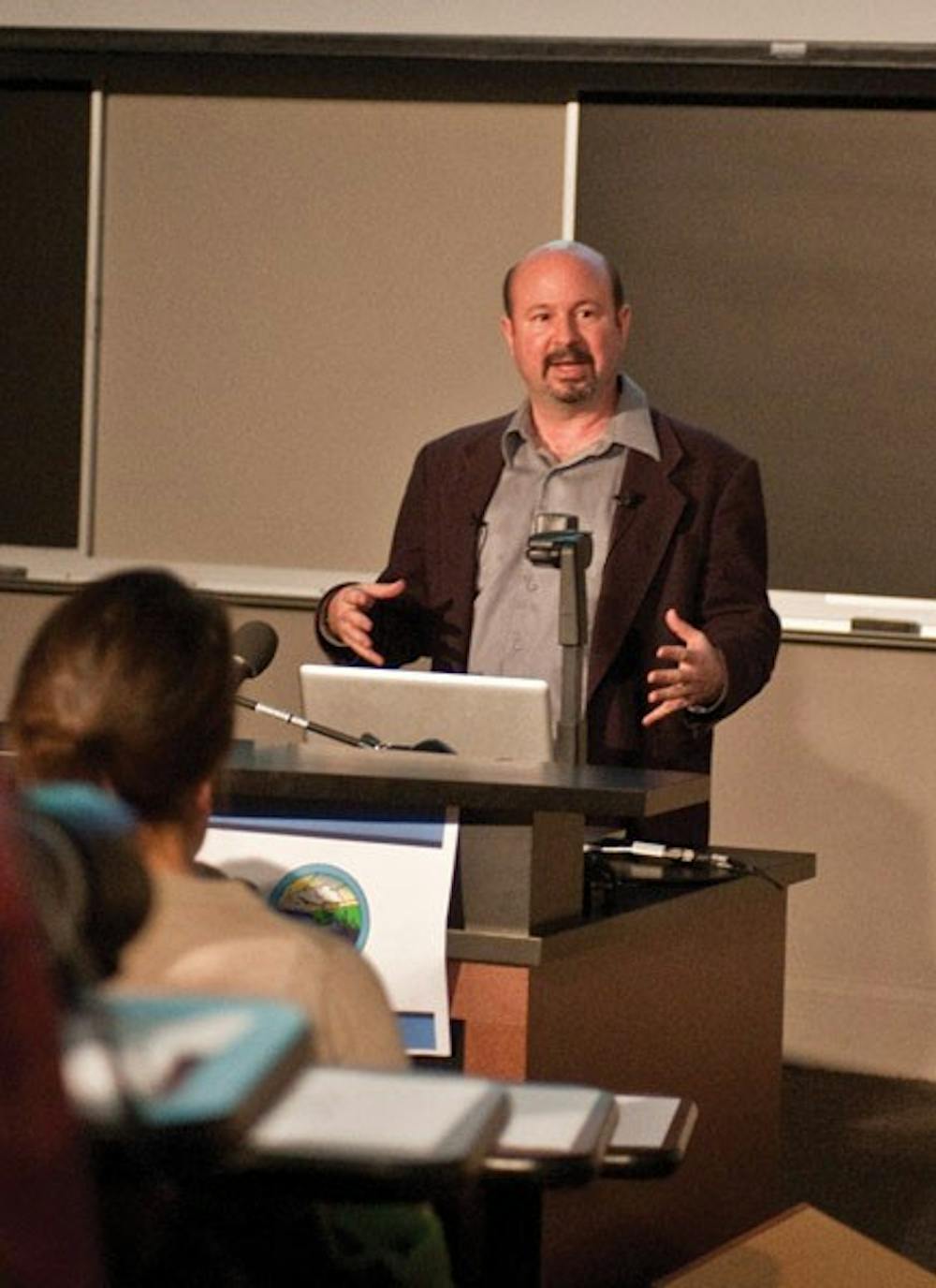The Virginia Supreme Court ruled Thursday to uphold the decision to deny the American Tradition Institute access to the emails of Michael Mann, a climate scientist and former University professor, staying consistent with the Prince William County Circuit Court’s previous ruling.
The American Tradition Institute, now E&E Legal, said it has the right to receive the documents under the Virginia Freedom of Information Act. The Court, however, ruled this circumstance fell under one of FOIA’s exemptions, arguing the disclosure of Mann’s correspondences may bring to light some of the University’s research, thereby reducing its competitiveness.
The lawsuit began in 2011 after ATI filed against the University for failing to disclose documents within a previously agreed upon time frame. David Schnare, ATI’s lead attorney in the case, said the institution suspected misconduct in Mann’s research work — dismissed as misrepresentation by University faculty — based on emails the University released. ATI said it wanted further evidence to supplement its suspicions, which were only bolstered by the University’s failure to release the additional emails.
“A large number of emails had already become public and they demonstrated a considerable amount of improper action and misbehaviour,” Schnare said. “Our position was ‘if it was out of context then give us the whole thing.’”
Richard Kast, associate general counsel to the University, said the University hesitated to reveal further faculty correspondence because faculty members would be less inclined to collaborate and debate on research issues if their opinions and ideas are in danger of being made public before publication.
“The issue is whether everything they’re talking about, before they come to conclusions, is going to have to be disclosed,” Kast said.
While the case exclusively concerned Mann’s research, Kast said the implications went well beyond his work.
“Michael Mann is one of the prominent climate scientists; climate sceptics have been after him and others in his field for some time,” Kast said. “However, this issue doesn’t concern just them, but any kind of controversial issue or research.”
If the Virginia Supreme Court had ruled against the University, organizations seeking the release of any research communications could have cited this case as precedent. Ultimately, the potential for dangerous precedent contributed to the court’s decision.
ATI’s stance “is not consistent with the General Assembly’s intent to protect public universities and colleges from being placed at a competitive disadvantage in relation to private universities and colleges,” it read. “In the context of the higher education research exclusion, competitive disadvantage implicates not only financial injury, but also harm to university-wide research efforts, damage to faculty recruitment and retention, undermining of faculty expectations of privacy and confidentiality, and impairment of free thought and expression.”
Mann said he was pleased with this outcome, and expressed his gratitude for the University’s defense and the court’s decision in a statement posted on Facebook.
“We are glad that Judge Sheridan’s decision was upheld by the Virginia Supreme Court,” he wrote. “This is a victory for science, public university faculty, and academic freedom. We are grateful for the vigorous defense waged by the University of Virginia in protecting their faculty and the integrity of research and scholarship.”
The legacy of this case largely depends on whether or not E&E Legal is awarded a rehearing, which Schnare said remains a possibility based on his belief ATI’s argument was misinterpreted. Schnare said ATI did not neglect to consider the trial’s impact on University competitiveness when making its case.
Kast said it is possible the case could face a rehearing, though they are not frequently awarded. However, as the verdict stands now, Kast said he believes this case has the potential to set important precedent going forward.
Mann said he hoped other universities would be able to look to this case for support in protecting faculty from unfair disclosures of information.







